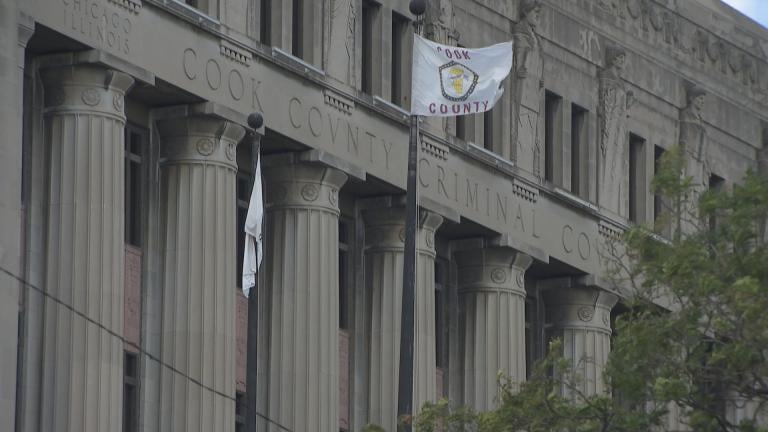In January, Illinois will eliminate cash bail — money paid to release someone from jail, as a guarantee that they will return for trial.
But the change won’t go into effect if a trio of state’s attorneys have their way as they seek to have the law, dubbed by drafters as the SAFE-T Act, declared null and void.
While the no-cash bail portion of the law is generating much of the attention , it does a lot more than that.
It’s 764 pages and according to a lawsuit brought by McHenry County State’s Attorney Patrick Kenneally the law creates, changes or touches, 40 different state statutes.
That’s among his and others’ problems with it.
“To many in law enforcement, this was a political ambush,” Kenneally said. “All of a sudden at the 11th hour in lame duck session (in January 2021), they sprung this thing. They strong-armed and excluded prosecutors, as well as police, as well as other people involved in the criminal justice system from any type of negotiations. They forced this thing through and now we’re left with the fallout.”
His is among three separate lawsuits filed by state’s attorneys. Kankakee County’s Jim Rowe and Will County’s James Glasgow have also filed suit.
Each of the complaints have variations but are similar in scope.
(Read the full lawsuits from Will County, McHenry County and Kankakee County.)
The Will County lawsuit alleges the quick manner in which the law was passed is itself a violation, because legislation is supposed to go before the General Assembly for a minimum of three days.
In Springfield, procedural moves are regularly used so the requirement is met technically, if not in spirit.
The state constitution also mandates that laws are kept to a single subject.
The McHenry suit alleges that the SAFE-T Act violates that by cramming in everything from police decertification to the bail overhaul.
“What the Illinois constitution, and what our founders thought that was a bad idea and wasn’t constructive,” Kenneally said. “So they want these bills to be able to be considered on their own merits and not just crammed through with sort of pork barrel legislation.”
State Sen. Elgie Sims, D-Chicago, was a leader of negotiations on the law. He said legislators have “tried very hard, the Legislature has been very sensitive to not mixing different issues in that way. So we’ve tried to make sure that all bills are germane to one subject area. The SAFE-T Act deals with public safety.”
He also takes umbrage with another criticism: That the bail changes violate the constitution’s separation of powers clause.
Sims says it’s disingenuous to challenge the process by which the bill was passed and at the same time allege there’s a separation of powers problem.
“You can’t have it both ways. You can’t challenge the way that the Legislature acts and then by the same token come back and say that the Legislature’s infringing on the judiciary’s powers,” Sims said.
Sims said legislators, like himself, were involved with an Illinois Supreme Court commission on pre-trial fairness that was a precursor to the SAFE-T Act, and since its passage the Supreme Court has been working on the law’s implementation.
But Kenneally says bail is a complicated balance of interests, and that prerogative should be left to the courts “especially when you’re talking about dangerous defendants who are likely to flee.”
His lawsuit also alleges that the SAFE-T Act undermines a constitutional amendment that requires judges to consider a victims’ safety and wellbeing when setting bail.
Sims, however, said the SAFE-T Act will make a “marked” difference for victims as some victims’ rights groups have attested to. For example, by ensuring that someone convicted of domestic violence isn't released just because they’ve got the cash to get out of jail.
Sims says these lawsuits are a waste of taxpayer money.
He says he promised early on to negotiate the various aspects of the law as they go live and that’s been happening around what he calls “implementation challenges” surrounding cash bail.
He says fixes haven’t been made yet because legislators have been respectful of the Supreme Court as the judiciary gears up for January.
“[The Supreme Court is] having statewide hearings to address and listen to some of the implementation challenges. We didn’t want to get out in front of that, so we wanted to let that process play out,” Sims said. “It’s unfortunate that the thoughtful manner in which we’ve been leading this process and going about this process has been usurped by political talking points.”
He says those conversations are happening now, amongst state’s attorneys, advocates and lawmakers, though he says all of the inflammatory rhetoric has made it harder, driving both sides to dig in their heels.
McHenry County’s state's attorney says he is not part of the talks, though he is following them.
Killeanny says he held off filing a lawsuit until now, in anticipation those negotiations would address his and others’ problems with the law
“Nothing has happened and so now we are at the precipice of this thing taking effect on Jan. 1 and there’s not been necessarily any guarantees,” Kenneally said. “And now what we’re hearing is that nothing is going to happen until after the election because nobody wants to put their name on this thing.”
The Legislature is scheduled to return to Springfield Nov. 15 at the earliest.
Follow Amanda Vinicky on Twitter: @AmandaVinicky





